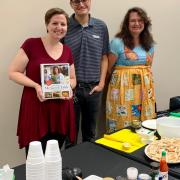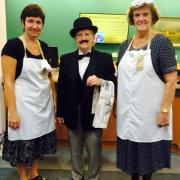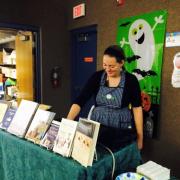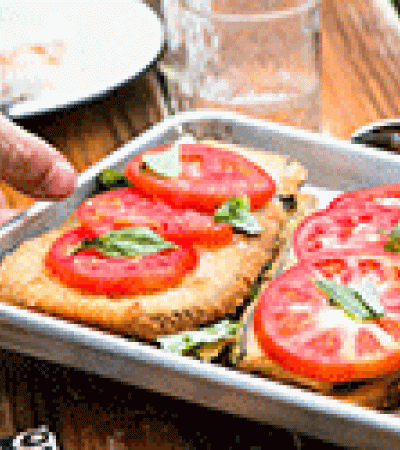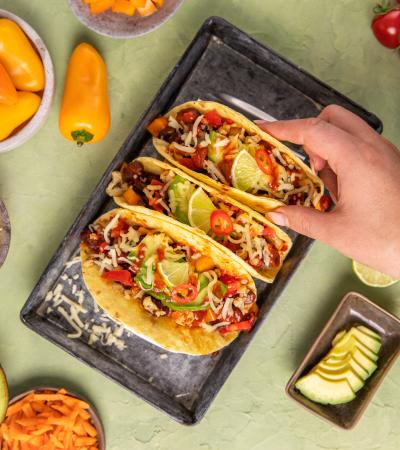Books & Bites, a delightful cooking demonstration presented by St. Johns County librarians, combines our love of literature and food. We take a popular title, book or TV show, and look at historical events that surround it.
Topics have included "Dead Wake: The Last Crossing of the Lusitania," paired with the menu from the ship; "True Grit," paired with campfire cooking; and "Before We Were Yours," paired with Southern cuisine. We have offered the program since 2015.
Advanced Planning
We started Books & Bites about four years ago and have covered a multitude of books and topics, including "To Kill a Mockingbird," "Dead Wake" and Ancient Greece. We have also combined pop culture, like the shoes "Downton Abbey," "Indian Summers" and "Game of Thrones," with historical events, ranging from British colonialism and manners to the American scandal of Georgia Tann and the Tennessee Children’s Home Society.
Each program in the series is presented at two to three library sites. This series has been presented at seven locations of varying sizes, including a public park for campfire cooking in honor of "True Grit."
Because of the amount of research needed for this series, I partner with another librarian in our library system. Currently, that other librarian is my brother, Chett Wood. He is in charge of researching the topic and lecturing on the day of the program. I, along with his assistant, Donna Braasch, decide on recipes, shop for supplies, and present a live cooking demonstration.
The greatest challenge we have faced was when our county decided not to allow food programs. After discussion, this was solved with a waiver all patrons must sign, as well as cooking all food on-site with previously unopened groceries.
Marketing
This series is promoted through the traditional methods used by our library system. These include fliers inside each library branch and on our library website. Occasionally, the series is featured in one of our local newspapers.
Budgeting
Books & Bites is sponsored by our Friends of the Library groups. Our goal is to keep costs to $100 per branch. This covers food for 25 to 50 people per branch, depending on what we prepare.
In our program descriptions we stress to patrons that we are serving sample-sized portions. This ensures they know what to expect and do not attend a program under the impression they are receiving a full meal. Fortunately, we have never had complaints about portion sizes!
Our patrons appear thrilled, and many tell us they consider our programs a full lunch. The great thing is you can adjust the menu and portion sizes to fit your budget. Patrons are excited to try new foods, so they will be satisfied with what you offer.
Day-of-event Activity
We implement the program with two or three staff members. Set-up on the day of the event can be time-consuming. Be sure you have 90 to 120 minutes for set-up.
We set up one table with a book display and beverages and two tables for food preparation and completed food dishes. A laptop, projector and speaker are also required. The lecture is accompanied by a Prezi with visual aids and YouTube videos to keep things interesting. (See examples of our Prezi presentations for "Outlander" and "A Passenger's Palate.")
In order to prepare the food on site, small kitchen appliances and electrical cords are essential. Staff members loan these items for the duration of the program, or ones that are used at more than one series have been purchased by our Friends group. Small appliances we frequently use include a Ninja, electric skillet, Crockpot, griddle, rice cooker and a single burner.
A word of advice: be mindful of how many items you have plugged in at once, or you could blow a fuse. There is also a need for basic kitchen utensils such as spatulas, mixing bowls, wooden spoons, knives, cutting boards, platters for serving, etc.
Allow about an hour for clean-up after the program.
Program Execution
We host five to seven Books & Bites programs per year with 25 to 50 patrons at each program. It has become a cornerstone program for our library system.
Because the subject matter is vastly different from one series to the next, it often brings in patrons who have never before attended a library program. It serves as a bridge to the community as well as encouraging interlibrary cooperation to offer a coherent system-wide programming staple. This helps to present a united view to the public.
The feedback received from the public is overwhelmingly positive. Patrons recognize the amount of research and preparation required to implement a program such as Books & Bites. They view it almost as a classroom learning experience. At our Indian Summers installment, two patrons told us they came specifically to try curry. They were in their 60s and were never brave enough to try it on their own. Providing experiences like this is what we strive for daily.
At the end of each Books & Bites program, we ask patrons to complete a short evaluation. On it, we ask them to rate the speaker, content, food, etc. The form also includes space for participants to suggest topics for a future series. We have used many of the ideas from these evaluations when creating upcoming Books & Bites programs. It gives participants buy-in to the program and gives us an idea on their current interests.
Advice
The biggest piece of advice I can give is to think about your topics. What is relevant in today’s libraries, literature and pop culture arenas? It is also easier to research a topic if you yourself find it interesting. This will bring enthusiasm to your presentation and be relayed to patrons, thus encouraging them to come back for future installments. (See Attachments at right for ideas.)
Patrons love YouTube videos, and TED Talks are your best friend! There are many different ones on topics you haven’t even thought of yet. Using videos or sound bites help break up the monotony of one main presenter. Also, let the “chef” chime in throughout the lecture with cooking tidbits or tricks to use in the kitchen.
An extra thing you can do is to give the patrons an experience in the program. For instance, in a past program we hosted on "Dead Wake" by Erik Larson, I researched the Lusitania’s passenger manifest. At the beginning, we gave each patron an envelope on which I had written a name, age and travel class. Inside was a blue (meaning lived) or black (meaning perished) slip of paper. At the end of the program, each patron opened their envelope to learn their fate. This exercise was more impactful than anything I personally could have said during the presentation.
Supporting Materials
- Feedback (Coming Soon!)
- Programming Librarian Facebook Group

